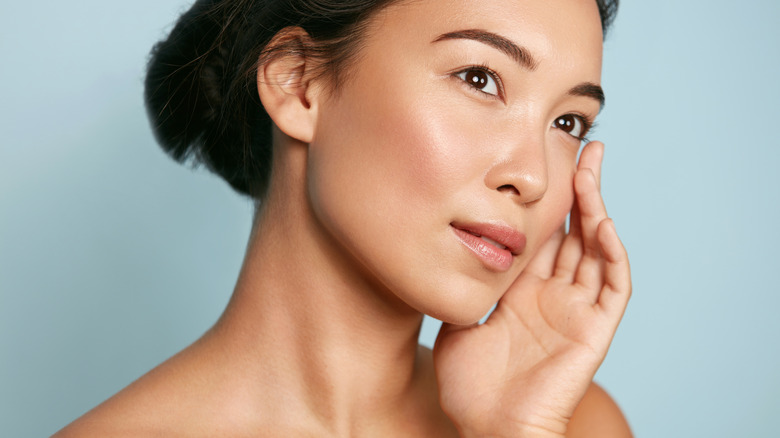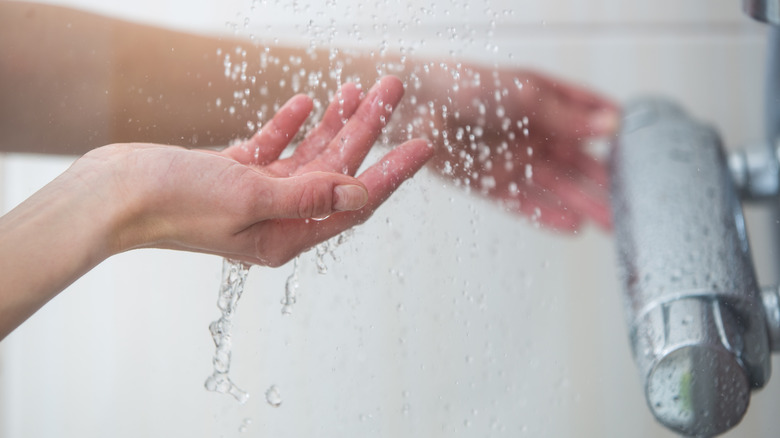What Is Your Skin's Microbiome And How Can You Keep It Healthy?
Most of us have heard of the gut microbiome, but did you know there's an entire microbiome that lives on our skin? In fact, our skin is home to millions of microorganisms including fungi, bacteria, and viruses. While this may sound bad for our health, these diverse colonies actually help defend against harmful pathogens and keep our immune system healthy and strong, via Nature Reviews Microbiology. So where do these microorganisms come from? Researchers suggest skin microbiota are present as early as birth. As we grow from a child, to an adolescent, and to an adult, the skin microbiota adapts and grows as we do. Once we reach adulthood, our skin microbiota becomes stable and immune-supportive as long as our skin barrier remains healthy, via Nature. Interestingly, different colonies of microorganisms inhabit different parts of our skin, depending upon how oily, dry, or moist those body parts are. This helps explain why some skin disorders are localized to specific areas of the body, which can assist with diagnostic efforts. For example, eczema is known to occur on the inner elbow, while psoriasis occurs on the outer elbow.
How to keep our skin microbiome healthy
The most common ways we affect our skin barrier and microbiome on a daily basis is through our personal care routines. While these routines help us feel clean, refreshed, and put-together, they can disrupt the skin's natural environment. For example, cleansing skin too often in a hot shower can leave skin dry and stripped of its natural oils, thus impacting the microbiome. Switching to lukewarm water and using gentle body cleansers that don't contain damaging sulfates, parabens, and fragrance is recommended for a healthy barrier, via Mindbodygreen.
And our skin health doesn't stop at body cleansers, either. Being mindful about which hand soap to use can have major health impacts. Particularly antibacterial hand soap. While it may sound desirable to use hand soap that can kill harmful, microscopic bugs on our hands, antibacterial hand soap can also kill the good bacteria too. Studies suggest that antibacterial soaps can actually have major negative impacts to our health, particularly our hormonal health. It's because of these health concerns that the FDA banned over-the-counter antibacterial consumer products containing an ingredient called triclosan. The FDA states regular soap is just as effective at cleaning our hands without the risk of major health concerns over the long run (via FDA).


